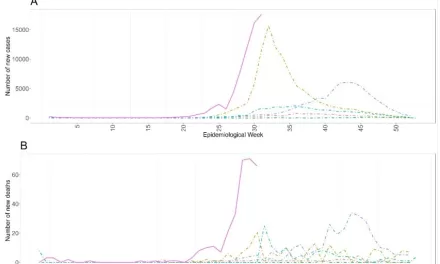In a significant stride towards combating advanced melanoma, the U.S. Food and Drug Administration (FDA) has granted approval for Amtagvi, marking the first-ever cellular therapy sanctioned for the treatment of adult patients with unresectable or metastatic melanoma. This milestone approval comes as a beacon of hope for individuals grappling with this aggressive form of skin cancer, particularly those who have exhausted previous treatment options.
Dr. Peter Marks, Director of the FDA’s Center for Biologics Evaluation and Research (CBER), underscored the critical need for novel therapeutic interventions in addressing unresectable or metastatic melanoma, a condition that poses substantial mortality risks. Amtagvi’s approval represents the culmination of rigorous scientific and clinical endeavors aimed at introducing a groundbreaking T cell immunotherapy tailored to patients with limited treatment alternatives.
Melanoma, triggered primarily by exposure to ultraviolet light, accounts for a disproportionate number of cancer-related fatalities despite comprising only 1% of all skin cancers. The disease’s propensity to metastasize underscores the urgency of early detection and intervention to curtail its progression.
Conventional treatment modalities for unresectable or metastatic melanoma often include immunotherapy employing PD-1 inhibitors and targeted therapies addressing the BRAF gene mutation. However, a subset of patients experiences disease progression despite these interventions, underscoring the pressing need for innovative therapeutic avenues.
Amtagvi heralds a paradigm shift in melanoma treatment, constituting a tumor-derived autologous T cell immunotherapy crafted from a patient’s own T cells. This pioneering approach involves extracting a portion of the patient’s tumor tissue, isolating T cells, and refining them before reinfusion into the patient—a process marking the advent of FDA-approved tumor-derived T cell immunotherapy.
Dr. Nicole Verdun, Director of the Office of Therapeutic Products in CBER, lauded the FDA’s unwavering commitment to fostering the development of safe and effective treatment options for cancer patients, reaffirming the agency’s dedication to innovation in oncology therapeutics.
Amtagvi’s approval, secured through the Accelerated Approval pathway, reflects the FDA’s resolve to expedite access to promising therapies for life-threatening conditions with unmet medical needs. A confirmatory trial is currently underway to validate Amtagvi’s clinical efficacy.
The safety and efficacy of Amtagvi were evaluated in a comprehensive global clinical study involving adult patients with unresectable or metastatic melanoma who had received prior systemic therapy. Noteworthy findings included an objective response rate of 31.5%, with several patients achieving complete or partial responses and sustained responses observed over six, nine, and twelve months.
Despite its therapeutic promise, Amtagvi is not without risks, with potential adverse reactions encompassing severe low blood count, infections, cardiac disorders, and respiratory or renal complications. Stringent monitoring protocols are recommended to mitigate treatment-related complications.
Common adverse reactions associated with Amtagvi include chills, fever, fatigue, diarrhea, rash, and hypotension, underscoring the importance of vigilant patient monitoring.
Amtagvi’s regulatory journey was bolstered by Orphan Drug, Regenerative Medicine Advanced Therapy, Fast Track, and Priority Review designations, culminating in its approval granted to Iovance Biotherapeutics Inc.
The approval of Amtagvi heralds a new era in melanoma therapeutics, offering renewed hope and tangible progress in the fight against this formidable disease. As patients embark on this groundbreaking treatment journey, collaborative efforts among healthcare stakeholders promise to redefine standards of care and elevate outcomes for individuals grappling with unresectable or metastatic melanoma.











